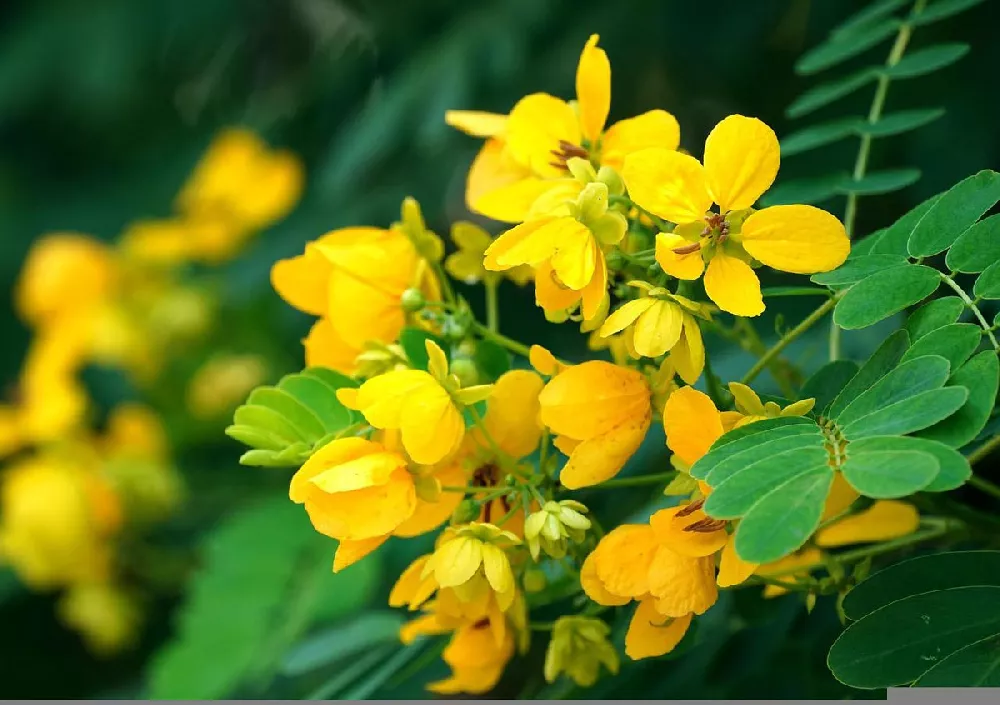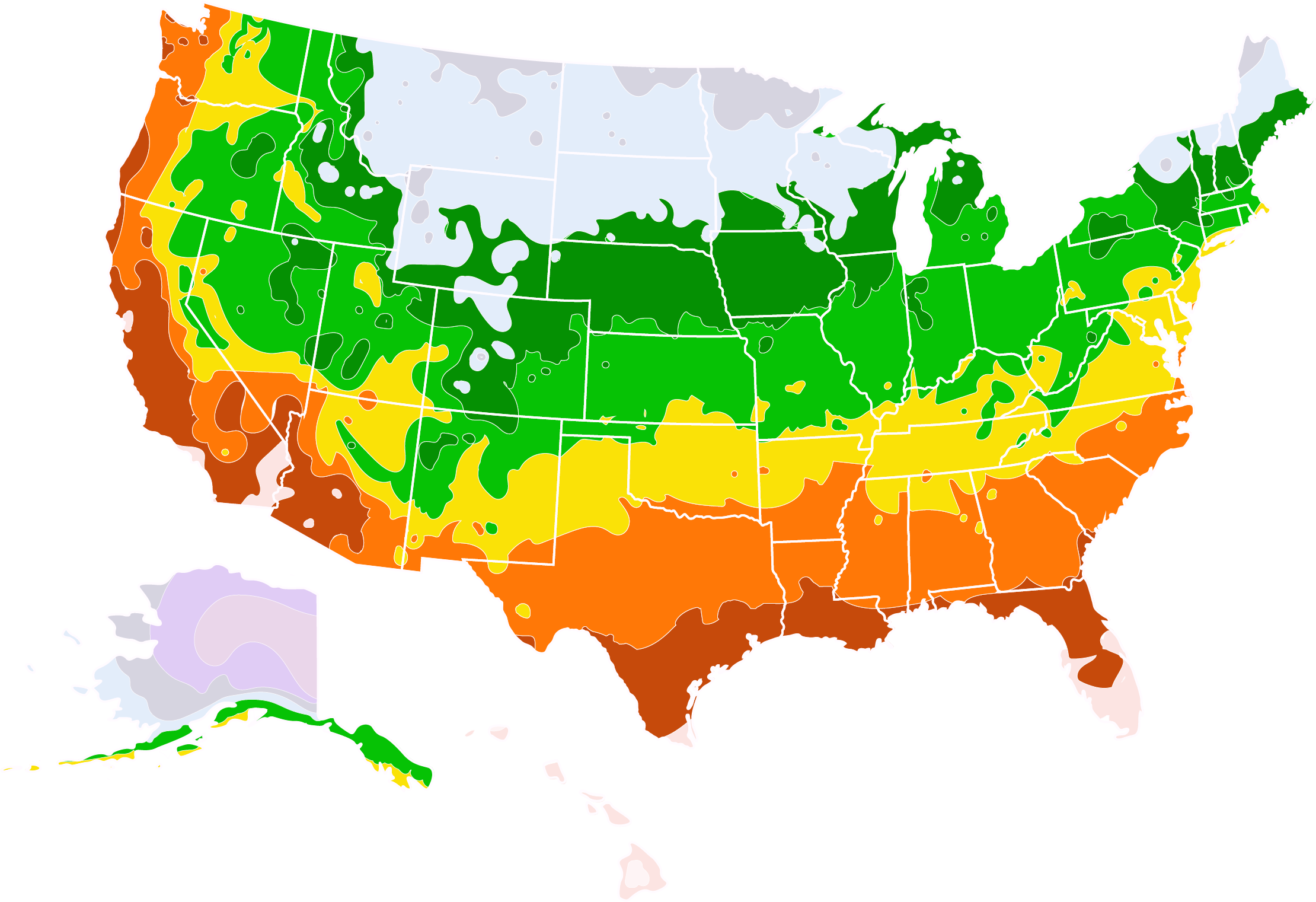Cassia Tree for Sale - Buying & Growing Guide
- Ships in 1-2 days
- 1-Year Warranty Eligible
- Pots or accessories are not included unless specified in the product options.
Shipping Details:
Products shipped through FastGrowingTrees.com. Once your order is shipped, you’ll receive an email with a tracking number and estimated delivery date. Most orders will ship immediately.
Senna polyphylla, better known as the cassia tree, is a species that gains its acclaim from its beautiful yellow flowers, which bloom in clusters that hang throughout the canopy. These flowers appear in spring and again in fall, and they will entice your garden visitors — and several pollinators, such as butterflies. The canopy itself consists of dark and dense foliage that makes a perfect contrast with the attention-grabbing blooms. This plant is moderately sized and grows in a desirable form without the need for heavy pruning and shaping.
- Its bright yellow blooms dangle from the branches and appear twice per year.
- The deep green leaves are lush and provide the perfect backdrop for the blooms.
- The cassia tree grows to a moderate size and beautiful natural shape.
Plant Care
Sunlight
Full sunlight settings make for the best results.
Watering
Water young plants about once per week. Older plants will need much less water and may survive drought.
Fertilizing
Fertilize three times per growing season, in spring, summer, and fall, with a fertilizer high in nitrogen.
Planting and Care
Planting instructions
When planting a cassia tree, you should choose a location that meets its growing requirements and allows the tree to display the full effect of its ornamental value. With full sun, well-draining soil, and several feet of spacing on either side, the cassia tree should grow well. You should also ensure that you place this plant in a central location where people can admire its beauty from all sides. This plant can also grow fairly well in a container as long as the container is large enough to accommodate the entire root system.
Watering and nutrients
A newly planted cassia tree should receive water about once per week until it has become established. Once establishment is reached, you should reduce the water you supply to avoid overwatering. In most cases, a mature cassia tree will grow well even in drought conditions and during extremely hot weather. Regarding fertilization, you can give your tree a nitrogen-rich blend at least three times per year. You can also consider increasing the fertilization rate to once per month.
Pollination
The flowering qualities of the cassia tree make it a perfect addition to pollinator gardens. Not only does this tree bloom with an impressive amount of flowers during each bloom period, but it also can bloom multiple times in a single year, once in spring and once in fall. During those bloom periods, the cassia tree will attract many different types of insects to conduct pollination, including several species of butterflies. Some of these butterflies even use this plant as an advantageous place to lay their eggs.
Pruning
Cassia trees tend to have an attractive form even if you don’t prune them. These plants usually have a single straight trunk with branches that form a spreading canopy. But while this plant can look great on its own, pruning is beneficial as well. Prune your cassia tree in the late winter or during the early weeks of spring. When pruning, you should remove branches that grow at a narrow angle and encourage those that spread more horizontally.
Pests, diseases, and animals
Pests can be a concern for those who grow the cassia tree. These pests, including whiteflies and aphids, are especially common for those who grow this plant in containers. Cassia trees that grow outdoors, in the ground, in a region that meets their growth requirements are often more robust and resilient than those that grow in containers, which makes them more capable of resisting pests and diseases. If you notice a pest infestation on your tree, it’s best to apply neem oil or some other type of insecticide.
Achieving maximum results
The cassia tree is one that can cause some confusion. This confusion mainly arises from the botanical name used to refer to this plant. Cassia trees used to belong to a genus known as Cassia but have since been grouped into their own genus, called Senna. Some nurseries still use older names but are referring to the same plant. These plants also produce fruits in the form of seed capsules. When these capsules fall, they can create a mess that you’ll need to spend time cleaning up. But beyond that, cassia trees are somewhat straightforward regarding their care.
FAQs
What are some other names for the cassia tree?
Cassia trees can go by several different names depending on who you are talking with. These names include "desert cassia," "scrambled eggs tree," and "golden shower tree." As you might guess, some of these names are a direct reference to the glorious golden flowers. Interestingly, this plant can go by multiple botanical names as well, since it has changed genera relatively recently and some continue to call it by its older name.
Is the cassia tree poisonous?
The cassia tree is not poisonous, but it is not grown for its fruits either. Instead, this plant is planted almost exclusively for its ornamental qualities. However, eating this tree can come with some negative side effects. The cassia tree contains a natural laxative that will loosen your stool and encourage your colon to contract more often, which will give you an intense urge to use the restroom.
Are cassia trees cold-hardy?
Cassia trees are not cold-hardy and won't survive in most areas of the United States. Instead, if you wish to grow one of these trees outdoors, you must live in an area such as southern Florida, where the weather remains warm year-round. Those in colder regions will need to settle for growing their cassia tree in a large container and keeping it indoors whenever the weather begins to get cold.
Compare Similar Products
Customer Reviews
Could not have better pleased with the quality of the trees. Shipped and received in just a couple of days.
You can't add more Product Name - Product size to the cart.
OK








